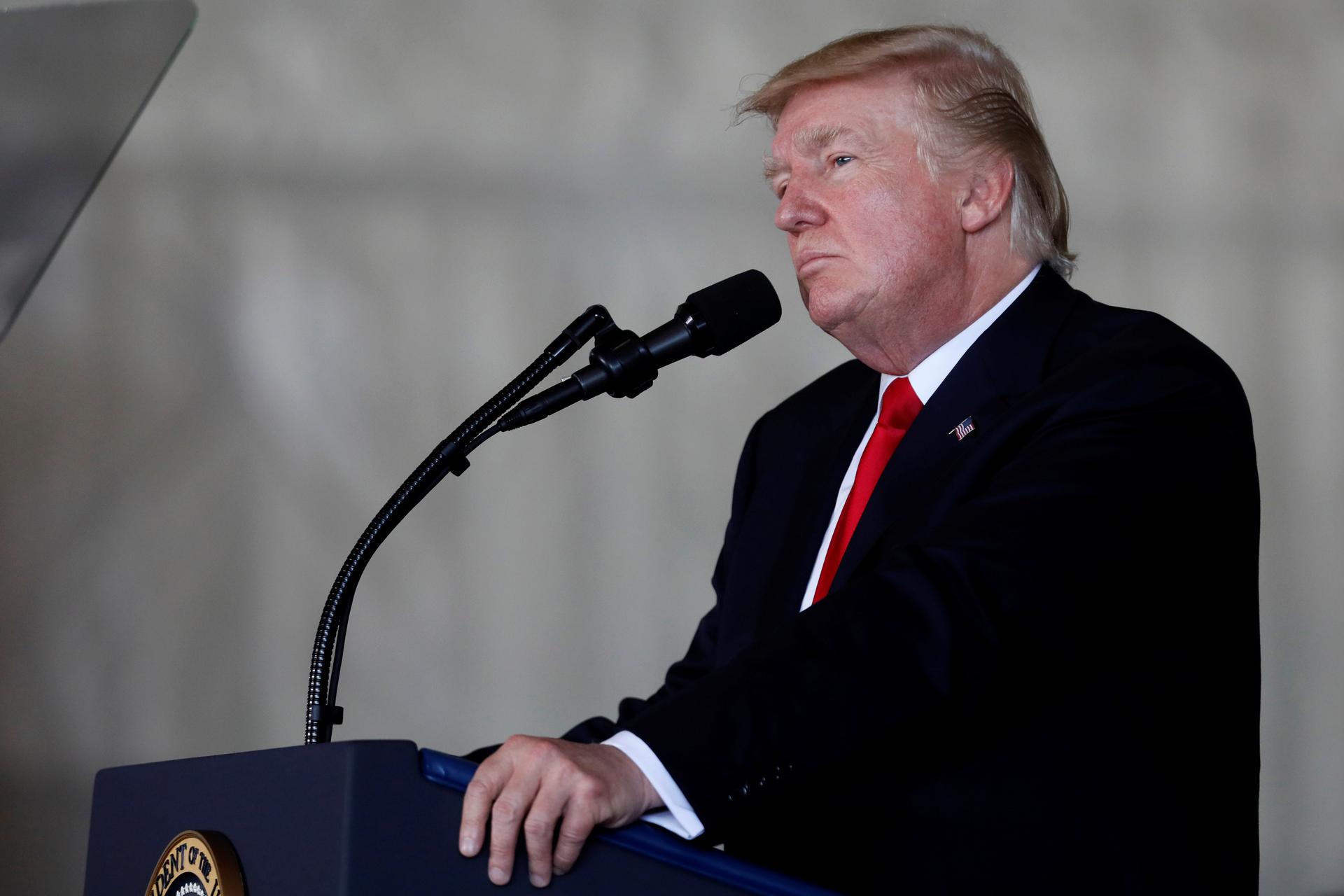Congress reaches deal on Russia sanctions, tying Trump’s hands
US President Donald Trump participates in the commissioning ceremony of the aircraft carrier USS Gerald R. Ford at Naval Station Norfolk in Norfolk, Virginia, US July 22, 2017.
The US Congress is poised to approve tough new sanctions on
In mid-June, the Senate overwhelmingly passed tough sanctions on
The House is now set to vote Tuesday on a bill that targets
Initially, Trump resisted the legislation, which would prevent him from unilaterally easing penalties against
But faced with near-total consensus among Republican and Democratic lawmakers, the White House blinked.
"We support where the legislation is now, and will continue to work with the House and Senate to put those tough sanctions in place on Russia until the situation in Ukraine is fully resolved," new White House press secretary Sarah Huckabee Sanders told ABC's "This Week" news program.
"The original piece of legislation was poorly written," she added.
Her boss, communications director Anthony Scaramucci, said it was still up to Trump whether or not to sign the measure into law.
"My guess is that he's going to make that decision shortly," Scaramucci told CNN, introducing a bit more doubt as to Trump's intentions.
Even if Trump were to oppose the measure, Congress could overturn it with a two-thirds majority of both houses.
"If he vetoes the bill, we will override his veto," Democratic Senator Ben Cardin told Fox News Sunday.
Once the House approves the compromise bill, the Senate will vote again, likely before the summer recess begins in August.
In
A spokeswoman for the European Commission said the draft legislation appeared to be "driven primarily by domestic considerations."
"Sanctions are at their most effective when they are coordinated. Currently our sanctions regimes are coordinated," she added, expressing concern that any new US measures could have "unintended consequences."
House Republican Majority Leader Kevin McCarthy alluded to those concerns, saying the text, which has not yet been made public, would "help bolster the energy security of our European allies by maintaining their access to key energy resources outside of
